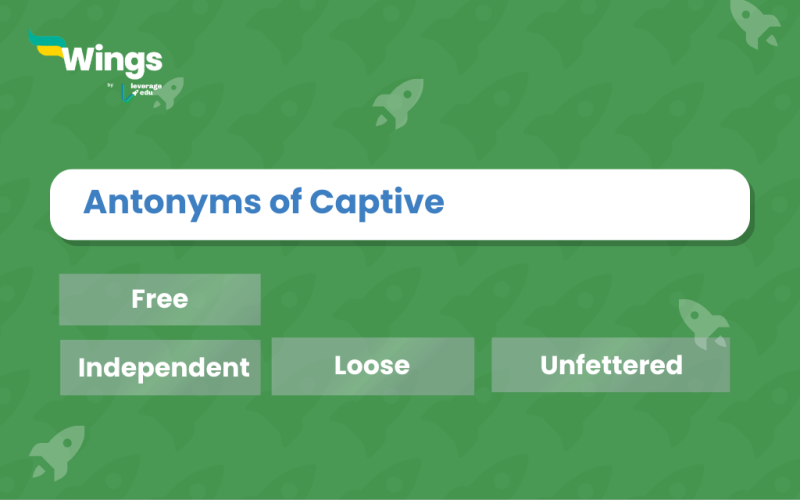Some common examples of the word captive are free, independent, loose, and unfettered. The term captive refers to the inability of the person or animal to move or act independently due to being kept in a confined space. Let us know more about the word captive, its meaning, origin, antonyms, and its usage with examples in the article blog below.
Origin and Meaning of Captive
The word captive originated in the late 14th century, from the Latin word “captivus” meaning caught, taken prisoner. It also means to take hold of something or to seize it. The standard definition of Captive is defined as the state of being restricted to the space from which it is difficult to escape.
7+ Opposites of Captive
Let’s take a look at the following opposites of captive to expand your understanding of the word:
- Free
- Independent
- Loose
- Unfettered
- Liberated
- Uncaged
- Boundless
Antonyms of Captive Examples With Usage
The term captive is often objective and can vary depending on the context and perspective of the speaker.
Let us understand the following examples of using the antonyms of captive in a sentence:
- Free: You are free to leave.
- Independent: I lead an independent life.
- Loose: The knot of rope felt loose.
- Unfettered: Rahul unfettered his mind from grief.
- Liberated: Freedom Fighters fought to liberate the country.
- Uncaged: An uncaged bear is in the arena.
- Boundless: They are filled with boundless joy.
Antonyms of Captive Quiz
1. Select the most appropriate antonym for the word captive.
A Unconstrained
B Confined
C Imprisoned
D Arrested
Answer: Unconstrained
2. Which word is not the opposite of the word captive?
A Ensnared
B Boundless
C Liberated
D Free
Answer: Ensnared
Explore More Exciting Reads Below
This was all about the antonym of “Captive” meaning and examples. Hope you are well versed with the word captive and its usage. For more such blogs, follow Leverage Edu.


 One app for all your study abroad needs
One app for all your study abroad needs












 60,000+ students trusted us with their dreams. Take the first step today!
60,000+ students trusted us with their dreams. Take the first step today!